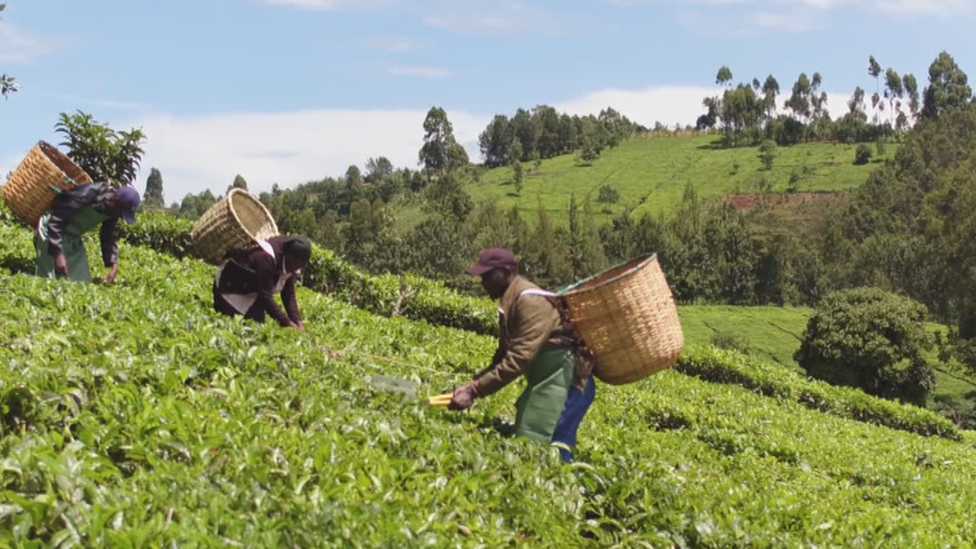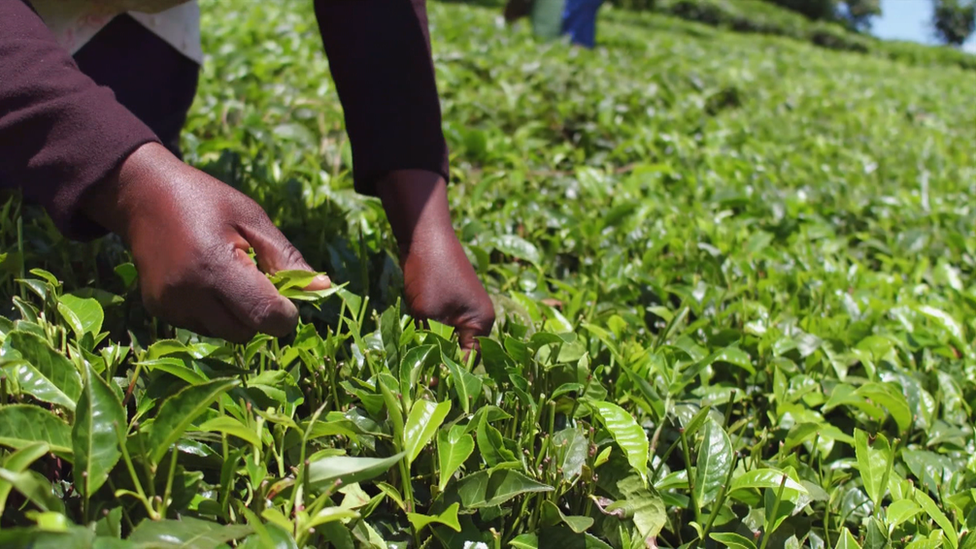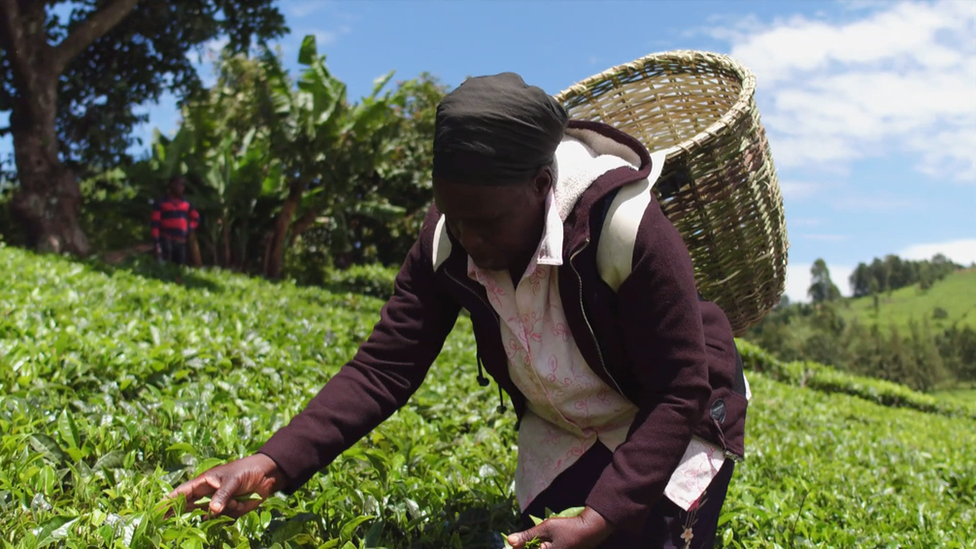Kenyan tea pickers allowed to sue firm in Scotland
- Published

A Scottish judge has said he will allow hundreds of Kenyan farm workers to take legal action against one of the world's biggest tea producers.
The workers are current and former employees of Finlays, a multi-national company which was founded in Scotland in the 18th century.
They claim conditions on Finlays' tea farms in Kenya damaged their health and are suing for damages in the Court of Session in Edinburgh.
Finlays opposes the action.
In a previous hearing the firm argued the action does not meet the requirements of Scotland's rules on group litigation proceedings.
These are known as class actions in other jurisdictions.
But in a virtual hearing, the judge Lord Weir said: "In principle and subject to clarification on the matter of a representative party, I am satisfied that the criteria for granting that application are met."
Another hearing will be held on the case next month.

Emily Chepkurui Sang (left) and Janeth Chemutai Tuigong both claim they were left with injuries as a result of working at Finlays in Kenya
Two of the former tea pickers who will take part in the legal action have described the conditions they claim they faced when working for Finlays.
Emily Chepkurui Sang, 47, said she worked 12-hour shifts with no breaks and was recently retired on medical grounds with back and neck pain.
She told BBC Scotland: "The health problems are a result of the work I was doing. At the moment I have a back injury and I retired on medical grounds.
"This means I have no income, my children are suffering - I don't know what I can do but I want justice."
Janeth Chemutai Tuigong worked at Finlays for 10 years and also suffers from neck and back pain which she claims was a result of her working conditions.
She said: "The work was very strenuous, it has affected my health and as I am speaking now I am disabled, I am out of work.
"My husband has deserted me, I am only left with my children. I cannot support my family and I am worried about my children."

The Finlays group is one of the world's biggest producers of tea and coffee and includes Starbucks among its customers.
It operates on five continents and can trace its origins back to James Finlay, a cotton merchant who founded the business in Scotland in 1750.
James Finlay (Kenya) Ltd is a Scottish company incorporated in 1925 with a registered address in Aberdeen.
Patrick McGuire, a partner at Thompsons Solicitors which represents the Kenyan workers, said: "This is an extremely important day in the long fight for justice for the Kenyan tea workers.
"We need to end their working conditions that can be described without exaggeration as modern day slavery. It is also a historic day for Scots Law as Lord Weir indicated that in principle the criteria for granting the application to bring group proceedings are met."
Injury claims
Most of the claimants are former tea pickers who say they were injured while working for James Finlay (Kenya) Ltd.
A previous court hearing had heard the pickers claim they were routinely asked to work up to 12 hours a day without a break, for six days a week, earning in 2017 an average monthly wage of £100.
Pickers had to harvest a minimum of 30kg (4st 10lb) of tea to be paid anything at all, it was claimed.
- Published22 December 2021
